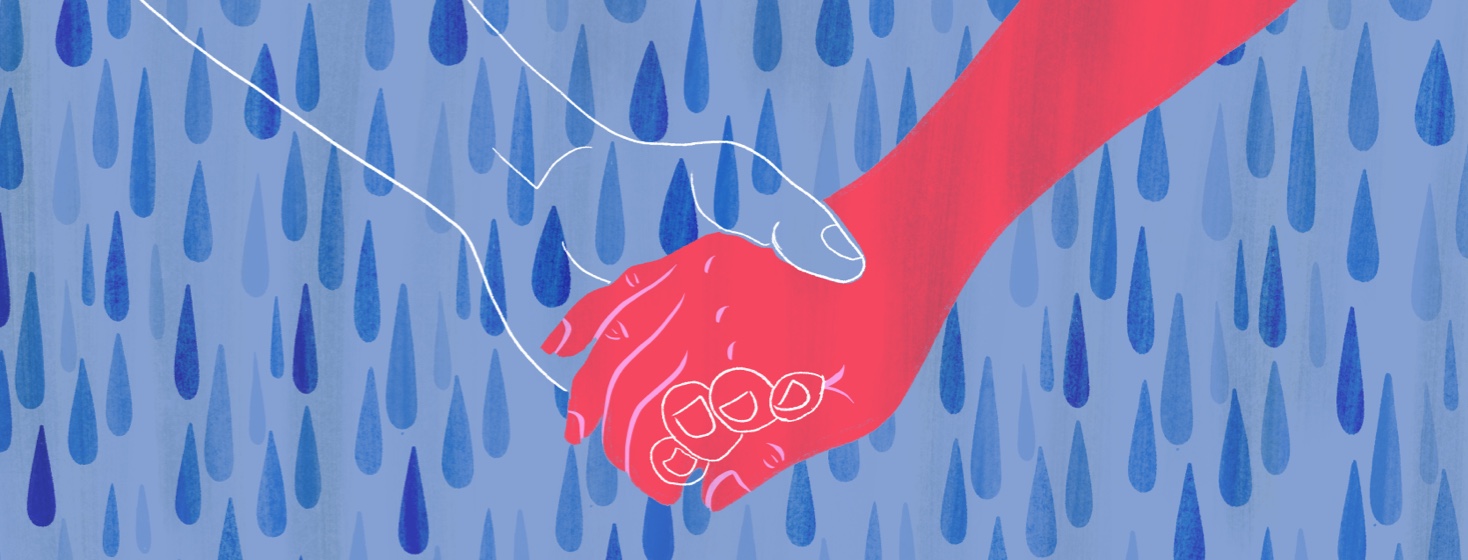Experiencing Losses
There are many types of losses: friends or family moving away, someone passing away, a relationship ending, missing school due to hospitalization, or losing people due to different opinions about epilepsy. These losses are felt deeply, especially when freedom becomes restricted, as it did when I was first diagnosed, and friends or family started acting differently.
True friendship through life's challenges
Despite these changes, I know some people would have stayed with me, no matter what. Even now, I stay alert to the possibility of a seizure, aware that even if it only lasts seconds, it can still affect how others see me.
Hospitalizations, especially when young, can interfere with friendships and social skills. It’s important to be ready for friends' questions and decide what information to share. Responses can vary, so considering each friend’s reaction is important. Sometimes I wonder if everyone should know or if that could result in lost connections. I apply the same thinking to my family, as it’s hard to predict reactions.
With loss often come emotions like anger, depression, and grief. I experienced all of these over time, but in college, I met Shelly, a true friend who showed me what real friendship meant.
At first, I couldn’t remember her name, but she kindly reminded me, and soon we became inseparable. We spent time exploring New York City, often visiting a club weekly until our mid-twenties. We did so many things together.
Later, she moved to New Jersey, and although she was once close, the distance grew. We rarely speak on the phone, and although things feel different, I know she will always be there. Despite the changes, we’ve always accepted and taken care of each other, like sisters. I have epilepsy, and she has bipolar disorder, but our connection remains strong.
Loss and finding support
Not all friendships last, though. Some people come and go.
One “friend” once left me stranded at a Brooklyn train stop, claiming to get off with me but disappearing. Luckily, a nearby deli owner let me call for help. I waited for hours until my mother and Shelly arrived, though they scolded me for trusting the so-called friend. Shelly simply said, “I never trusted her.”
A high school ex-boyfriend also canceled plans for a play I’d bought tickets for, but a friend convinced me to go anyway. We still had fun.
There is often someone to lift you up, whether a friend, family, nurse, or doctor—even strangers have helped me, especially with seizures.
Some losses are harder to handle, like the feeling of hurt when a professor discriminated against me for needing extra time on tests due to epilepsy. She told me I’d fail, but I actually passed.
She even excluded me from a class trip and I will never forget that. At another school, though, I felt acceptance. Security would let me sit with them, and professors and students were supportive, even helping me make two new friends. We formed a team, and no one judged. It felt great to belong.
The strength to move forward
When I told a professor about my condition in graduate school, he responded, “You don’t have to tell me or send any information from the disability center.” I was shocked but felt accepted, like at my previous school. Feeling welcomed made all the difference.
Another unexpected loss was a grammar school friend who passed away. We had talked about hanging out a week before, and I initially blamed myself for not calling.
But I realized sometimes things are beyond our control. I remember him fondly and picture him in a better place, alongside memories with other classmates who stood by me without questioning my condition.
Even changing doctors felt like a loss, as trust was already built with the previous one. Adjusting to a new doctor has taken time, as no one is exactly alike. Although we all experience loss, what’s important is how we handle it and what we learn.
Freedom is a want but is sometimes not an ability at all or because of seizures, transportation, locations, parties, sports, or other, that are unable to be done or if unable to be alone, but always remember how great and smart you are inside of yourself.
We all experience loss of one type or another, but what is important is how we handle the loss, and what we learn from it.

Join the conversation